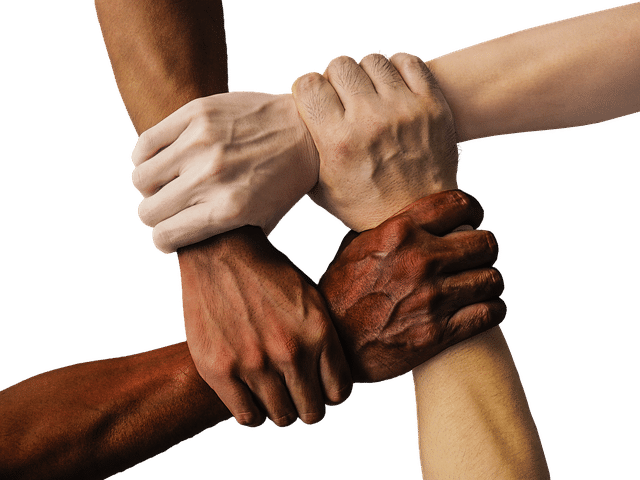The post Face Your Fears and Become a Better Blogger appeared first on ProBlogger.

This post is based on episode 54 of the ProBlogger podcast.
This week I want to talk about fear. Not about eliminating it or ignoring it, but rather about recognising, harnessing and overcoming it so you can use it to your advantage.
Whether you’re a blogger, podcaster, live streamer or social media user, chances are fear has held you back at some point. Here are some of the most common fears I’ve heard over the years:
- “What if nobody reads it?”
- “What if I hurt someone with what I write?”
- “What if I don’t write as well as I think I do?”
- “What if people laugh?”
- “What if I say something stupid?”
- “What if I reveal too much about myself?”
- “What if I fail?”
- “What if I’m wasting my time?”
- “What if people steal my content?”
- “What if I run out of things to say?”
- “What if I make a promise I can’t keep?”
- “What if I get attacked or stalked?”
- “What if my product doesn’t sell?”
- “What if I get criticized for trying to make money from my blog?”
And I’m sure you could add a few of your own to the list.
When you put yourself and your thoughts out there for other people to read, watch and listen to, it’s natural to fear how those people might respond.
And believe me, you’re not alone.
I’ve faced many of these fears myself, not only with my blogging but also with the ProBlogger events we’ve run over the years. We invest hundreds of thousands of dollars into those events, and these fears ran through my head every time:
- What if no one shows up?
- What if no one buys a ticket?
- What if our speakers don’t arrive?
Fear can be useful
Fear can be very useful. It helped keep early man alive rather than being eaten by sabre-tooth tigers. And even today it stops us from doing things that could endanger our lives (or at least make us think twice about doing them).
But it can also stop us from doing things that aren’t so life threatening, and may even be good for us in the long run.
Fear is a signal that we need to pay attention. But we shouldn’t let it overwhelm us to the point where we’re too scared to do anything. Instead we should evaluate exactly what’s at stake and react accordingly.
I once tweeted, “Don’t let fear stop you from starting. Let it motivate you to finish”. Sometimes you need to push past your fear and almost ignore it. For me it’s often when I start a new project, although it can also be a motivating factor at other times.
I’ve learned that when people ask me to do things I need to push my fears aside (or at least to a point in the future) and just do them. Saying “Yes” rather than giving in to my fears and saying “No” has opened up all kinds of opportunities for me.
And when I need to face those fears I pushed aside, they become my motivation to do the best job I can possibly do.
Think of fear as a sign
At one of our ProBlogger events I said, “Fear is a sign that something important is to happen”. And I think that’s a really important principle to follow.
All the important things that have happened in my life so far have been accompanied by fear:
- when I proposed to Vanessa
- when my kids were born
- when I bought a house
- when I started blogging
- when I hired my first team member
- when I launched my first ebook
- when I accepted my first speaking engagement
- when I wrote the ProBlogger book
- when I started podcasting.
That’s why I think of fear as a signal that something important is about to happen, which can make it seem almost like a good thing.
Pay attention to the things you often have fears about, and try to think of them as signs rather than being overwhelmed by them.
Three questions to ask
Of course, seeing fear as a sign rather than being overwhelmed by it is easier said than done. So here are three questions I suggest you ask yourself whenever you feel overwhelmed by a particular fear.
1. “What’s the worst thing that could happen?”
This question is all about getting perspective, and trying to bring your fears into some sort of reality. By asking this question, you’ll realize the worst thing that could really happen really isn’t that bad.
When my son started in a new basketball team he was worried that he’d look stupid in front of his teammates.
“What’s the worst thing that could happen?” I asked.
As he went through various scenarios of bad things that could happen, he realized that none of them were bad after all.
2. “How would I recover if the worst thing did happen?”
This is an important question to ask, especially if the worst thing that could happen is quite bad.
For one of our ProBlogger events, my big fear was that our three international speakers wouldn’t be able to make it because of a weather delay or something. And running an event where your three main speakers don’t come is a pretty bad thing.
So I asked myself how I’d recover if they couldn’t make it, and started making some contingency plans, such as:
- running other sessions instead
- getting our international speakers to connect via Skype
- making it up to the attendees in some other way.
None of these solutions were perfect. But they did make the ‘worst thing that could happen’ seem a little less catastrophic.
Of course, sometimes the worst thing that could happen is so bad that you could never recover and will need to either change what you’re doing or not do it at all.
3. “What’s the best thing that could happen?”
This final question makes you stop focusing on the worst-case scenario (which we all tend to do) and think about the best-case scenario. Because what actually happens most of the time lies somewhere between these two extremes.
Focusing on the best possible outcome can give you the courage to take a step forward. You may not achieve it, but chances are you’ll get closer to it than the worst possible outcome you’ve been fearing all this time.
Fear is a good thing
I want to finish up by saying you shouldn’t be trying to smash your fear or eliminate it from your life. Fear is important, and not something you should push aside completely. You may need to give it a bit of a shove from time to time, but you should always pay attention to it. It’s a sign that something important is going to happen.
Whenever you face an important, life-changing event you’re going to feel a little wobbly. But as a friend once said to my wife, “Even wobbly courage is still courage.” You don’t need to eliminate fear. You just need to get enough courage to move forward.
And remember that courage is actually borne out of fear. If you’re not scared, you can’t be brave. So focus on getting that little bit of wobbly courage up and taking a step forward despite the fear you’re feeling.
Over to you
I’d love to hear your feedback on this topic, because I certainly don’t have all the answers. I still struggle with fear from time to time. Feel free to share your stories and advice in the comments.
Photo by Alistair Dent on Unsplash
The post Face Your Fears and Become a Better Blogger appeared first on ProBlogger.




